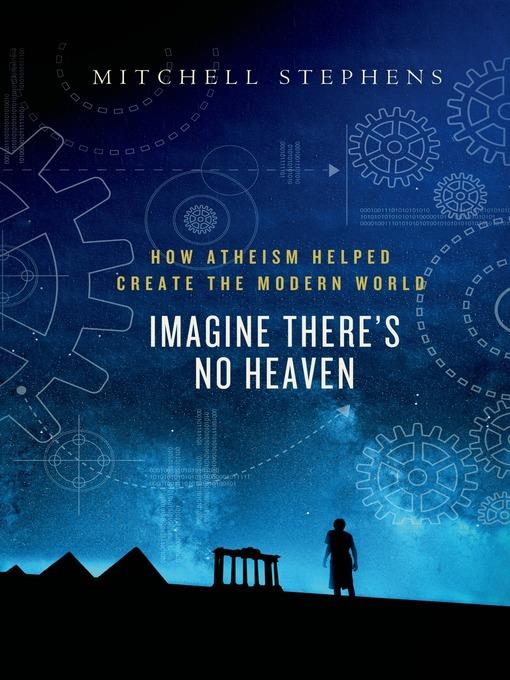
Imagine There's No Heaven
How Atheism Helped Create the Modern World
کتاب های مرتبط
- اطلاعات
- نقد و بررسی
- دیدگاه کاربران
نقد و بررسی

March 3, 2014
Stephens (A History of News), a historian and professor of journalism at New York University, proposes that some major advancements in science, politics, and mathematics were enabled by disbelief in gods. Drawing on evidence which includes tablet writings dating as far back as 415 B.C.E., as well as documents suggesting that the denouncement of gods, doubt in the supernatural, and denial of an afterlife were not uncommon, Stephens points out that atheism âwhether skepticism, cynicism, or anacreonismâis not a recent development. Many great minds of the modern era, such as Newton, Mill, and Darwin, among others, shared doubts and denials about god. Fueled by irreligious dis- and non-belief, rationalism, natural explanations, and common sense, these thinkers chipped away at the faiths of many, causing questioning and prompting changes and increased learning first in Athens, then Europe, and eventually worldwide. Unclear, though, is the connection of their disbelief in god to the uncovering of the laws of physics, the writing of On Liberty, and the theory of evolution. Though surely not providing any definite answers, Stephens provides an intriguing take on a topic that has sparked much discussion and will surely spark more to come.

January 1, 2014
How and why atheism, which has a long and little-known history, has contributed substantially to many of the more humane and enjoyable aspects of the modern world. Stephens (Journalism/New York Univ.; A History of News: From the Drum to the Satellite, 1988, etc.)--has not composed yet another screed but, for the most part, a reasonable summary and analysis of the phenomenon of atheism. He does have a pro-atheism position, however, that becomes increasingly prominent--or more difficult to disguise--as the text progresses. The author begins in 1728 with Denis Diderot, a name that appears continually, and then retreats to ancient Greece and marches steadily forward the rest of the way. Even the chapters about the long-ago world, however, feature more recent allusions (B.F. Skinner pops up in the same chapter with Gilgamesh). Throughout, Stephens deals with the disbelievers, the believers and the in-betweeners, many of whom are no surprise--Socrates (not an atheist), Galileo, Shakespeare (who played it close to the doublet), Newton (who swung both ways), Darwin, John Stuart Mill, Shelley, Camus and Richard Dawkins. The author also drags from history's shadows some lesser-known names: Jean Meslier, a 17th-century priest who changed his mind; Baron d'Holbach, whose book The System of Nature (1770) became "one of the most reviled--and read--books of the eighteenth century"; Charles Bradlaugh, who traveled around England preaching atheism and engaging in fiery debates; and Annie Besant, a vicar's wife who became involved with Bradlaugh. Stephens rehearses the arguments about the violence often visited on others by true believers and deftly handles the counterarguments about the irreligious evil ones among us. Ultimately, he gives heavy credit to atheists for social advances (abortion, gay rights, women's rights) that many religions opposed most desperately. A text sure to give atheists some data and believers another annoyance.
COPYRIGHT(2014) Kirkus Reviews, ALL RIGHTS RESERVED.

February 1, 2014
Stephens (media studies, New York Univ.; A History of News) has been researching the history of atheism for over a decade, and there's no question such a study is needed. For the most part, what he produces is Whig history: the tale of the advance of enlightenment against the retrograde forces of superstition and repression. He analyzes the phenomenon of disbelief--why it appears, what its effect is on society--but for the most part the book is composed of vignettes of champions in the spread of enlightenment and skepticism. Some are familiar names (Newton, Spinoza, Diderot, Mill, Darwin, Shelley, Marx, Camus, and Sartre). Some are not, such as the 19th-century crusaders Ernestine Rose and Charles Bradlaugh, or the 20th century's Madalyn Murray O'Hair, founder of American Atheists. Over all, Stephens's tone hovers between history lite and history serious, but his observations on why disbelief has arisen and what its consequences have been--principally, higher standards of proof and greater tolerance--are sound and helpful. VERDICT This isn't the book that scholars have been waiting for on the subject, but Stephens makes a good case for his interpretations.--David Keymer, Modesto, CA
Copyright 2014 Library Journal, LLC Used with permission.

























دیدگاه کاربران